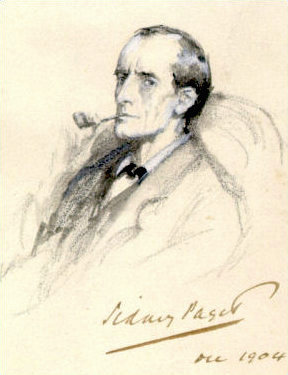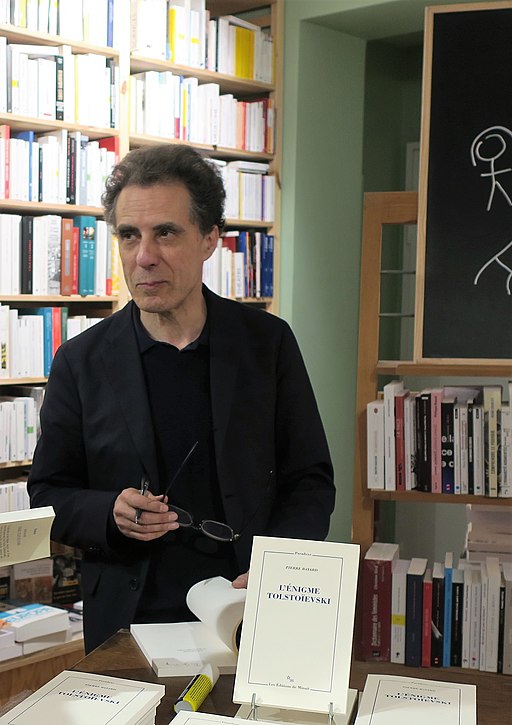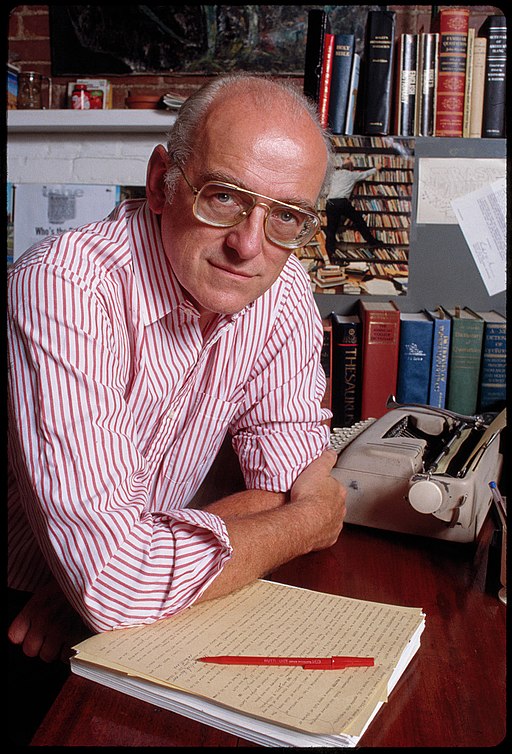ChatGPT Flaws
After Midjourney and Dall-E for the generation of images, it is the artificial intelligence ChatGPT flaws which threatens to put several professions out of work, this time in the writing sector. And while the world has in fact been prepared for this for a long time, there remains an unexpected ray of hope in the face of machines: a certain form of humor.
To paraphrase a famous contemporary statesman: “Who could have foreseen that after illustrators and graphic designers, journalists and authors would be so quickly threatened by artificial intelligence? “. Who ? But absolutely everyone! And for a long time, too.
In 1962, in his novel The Silver Eggheads, the American science fiction writer Fritz Leiber imagined a world in which writers had only a role of public representation, to promote works written by machines from key words. We are there, or not far.

August 1941 cover of the Future Fiction magazine, volume 1, issue 6. John Forte, Public domain, via Wikimedia Commons
So, after a summer of 2022 spent teasing our fellow artists threatened with extinction by the most advanced image-generating AIs, we reveled somewhat viciously in the expression of terror appearing on their faces when Midjouney, after a single minute of reflection, gives birth to a prog-rock cover circa 1973, we, writing professionals, could hardly not imagine that in the more or less short term, an artificial intelligence was also going to force us into the skin of a canut in 1831. ChatGPT is only the beginning of the story.
Read also: ChatGPT the Chatbot With a Million Users that Impresses the Web
An already mature market
The breakthrough of AI should surprise us all the less as the market has been prepared for it for a long time by certain publishers and press groups, whose only concern is to occupy the field by always spending a little less, even if it means blowing their nose. with quality.
After years of underpaying the links closest to the creative process, these decision-makers have embarked on an in-depth eradication of positions deemed obsolete and, above all, too costly (proofreading, translation, artistic direction, etc.). The functions were then concentrated by forceps in one or two individuals who, under the weight of these new tasks, can no longer do anything correctly.
The quality of texts generated by AIs is for the moment much lower than what writing professionals should demand of themselves… but already perfectly at the level of those who suffer so much from paying for them.
This race for discounts will also have had the consequence, in the more specific case of publishing, of generating overproduction, between photocopies and drivel, which, long before the creation of OpenAI, had largely contributed to the fact that creators did not can settle for more than crumbs… and to lower public expectations. When you consider the mass of Twilight sub-books, personal development books, or, in my field (the young adult novel), the umpteenth variations around a hidden relative of Sherlock Holmes (himself very busy two piles further fighting Cthulhu alongside a random personality from the 19th century arts or sciences), it already feels a bit like algorithms are at the helm to keep us going in circles.

Sherlock Holmes in a 1904 illustration by Sidney Paget. Sidney Paget, Public domain, via Wikimedia Commons
So why deprive yourself of finishing the job?
The quality of the texts generated by the AIs is certainly, for the moment, much lower than what writing professionals should demand of themselves… but already perfectly at the level of those who suffer so much from paying for them (since writing, as everyone knows, is easy). I have the chance to know the last “pure” of the profession: I savor it every moment!
Start up Character.AI begins to overshadow ChatGPT as a Game-Changing AI Conversational Platform
Humor, or the revenge of analog
On the economic level, it is therefore almost certain that many of us will leave our feathers there. Do we at least have our sense of superiority left to console us? He too will be mistreated in the long term: who knows what a ChatGPT will be able to do in five years? And yet, yet… all is not over for everyone.
The chance of Christmas presents made my discovery of ChatGPT coincide with the reading of Leave It To Psmith by P. G. Wodehouse, which was linked with that of Scoop by Evelyn Waugh. Two summits of the humorous novel. So, between two giggles, I realized that it was this particular genre that no AI in the world, today and certainly for a very long time, would be able to imitate convincingly. For what ? Precisely because the literature of humor is based on a constant effect of surprise that borders on pure chance. And what separates it escapes all definition, all reproducibility, all equations: it is perhaps in this thin interstice that the true human genius nestles. We will never know if this is what Aristotle explained in his lost volume on comedy, but in these times of post-truth, it suits me well to say yes.
As long as computers are calculators – waiting for positronic brains à la Asimov (he was an American writer and professor of biochemistry at Boston University. During his lifetime, Asimov was considered one of the “Big Three” science fiction writers, along with Robert A. Heinlein and Arthur C. Clarke. A prolific writer, he wrote or edited more than 500 books) – they will remain powerless to unlock the secret of the comic spark, that tipping point that can be seen but not explained.
In one of the famous Jeeves novels by P. G. Wodehouse, we can read this exchange between two old friends:
– Bertie, can you keep a secret?
– No.
What AI would be subtle enough to imagine that a word as banal, as simple, as innocuous as “no”, in this precise situation, because it is followed by no justification, could produce a comic effect?
Comic effect is to writing what “quantum weirdness” is to physics
The aluminum packaging of a champagne cork will never be spontaneously put into the comic register by an AI. However in Scoop, a young woman undertakes to make a molding of her nose with one of these packagings while the hero of the novel embarks on a laborious marriage proposal. Only a human (and only Evelyn Waugh, perhaps) could have had the intuition to turn this undetectable accessory into a weapon of mass distraction. The comic effect is to writing what “quantum strangeness” is to physics.

Pierre Bayard, founder of “interventionist criticism”, he is opposed to neutral and uncommitted criticism of literary works. BaoChanTL, CC BY-SA 4.0, via Wikimedia Commons
At the risk of making my former teachers howl – the iconoclast Pierre Bayard (founder of “interventionist criticism”) in the front row – I’m willing to bet that the AIs will be able to imitate the digressions of Marcel Proust long before they equal Donald Westlake.

Proust in 1900 (photograph by Otto Wegener). Marcel Proust, a French novelist, critic, and essayist who wrote the monumental novel In Search of Lost Time (À la recherche du temps perdu; with the previous English title translation of Remembrance of Things Past), originally published in French in seven volumes between 1913 and 1927. He is considered by critics and writers to be one of the most influential authors of the 20th century. Otto Wegener, Public domain, via Wikimedia Commons
And let’s close the loop: if Midjourney manages well to make sub-Druillet, we can on the other hand wait a long time before it produces something as refined (in the line) and hilarious (in the subject) as this box de Sempé where a family of peasants watches, dumbfounded, a TV presenter ask: “How does your dreamlike concept with a Kafkaesque tendency coexist with the sublogical vision that you have of intrinsic existence? “.

Donald E. Westlake at home in the 1980s. Bernard Gotfryd, Public domain, via Wikimedia Commons
This is a nice revenge for all those who, precisely because their job is to make people laugh, have been looked down on throughout their careers. Terminator spread by Jerome K. Jerome… There, for once, “who could have foreseen”?
Photo credit (main picture): Alexandra_Koch via Pixabay
ChatGPT the Chatbot With a Million Users that Impresses the Web







